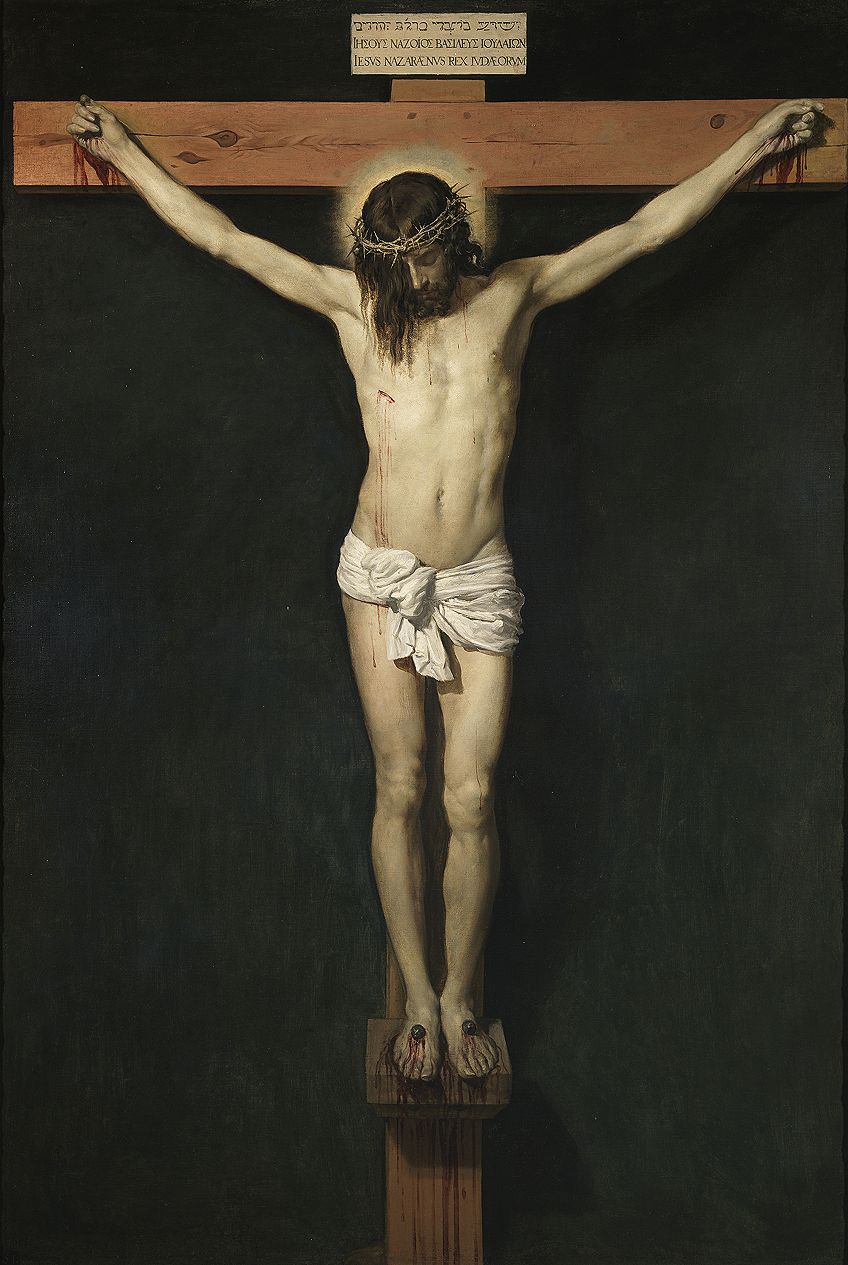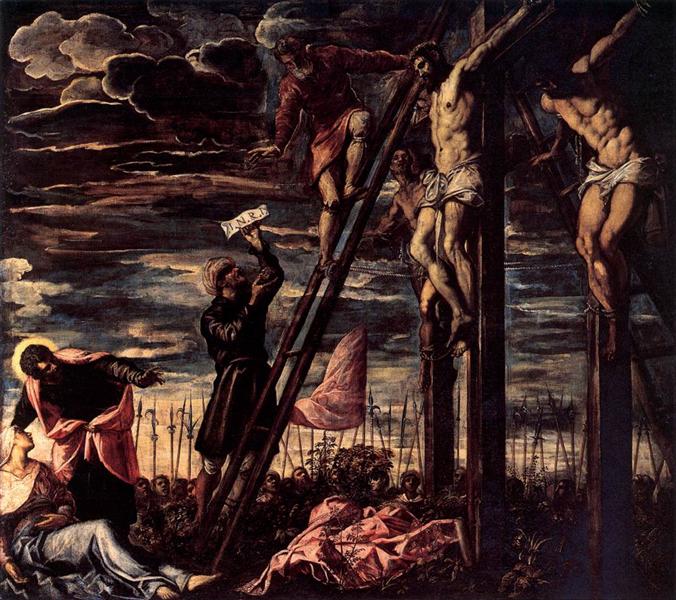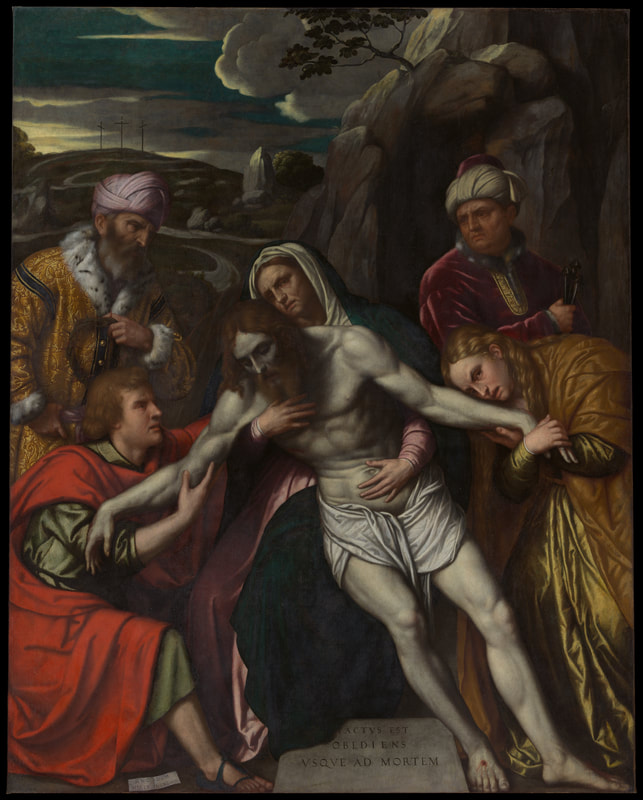Mark 15:6-15
Christ Crucified in the Place of a Murderer
Pastor James Preus
March 29, 2024
6Now at the feast he used to release for them one prisoner for whom they asked. 7And among the rebels in prison, who had committed murder in the insurrection, there was a man called Barabbas. 8And the crowd came up and began to ask Pilate to do as he usually did for them. 9And he answered them, saying, “Do you want me to release for you the King of the Jews?” 10For he perceived that it was out of envy that the chief priests had delivered him up. 11But the chief priests stirred up the crowd to have him release for them Barabbas instead. 12And Pilate again said to them, “Then what shall I do with the man you call the King of the Jews?” 13And they cried out again, “Crucify him.” 14And Pilate said to them, “Why, what evil has he done?” But they shouted all the more, “Crucify him.” 15So Pilate, wishing to satisfy the crowd, released for them Barabbas, and having scourged Jesus, he delivered him to be crucified.
Barabbas sat in prison with the other criminals, chained securely, so that he could not escape, for he was a dangerous criminal. He had been tried and found guilty of murder and insurrection, having rebelled against the Roman government. Outside, not too many yards away, Roman soldiers had constructed three crosses. Barabbas, as a particularly notorious criminal, would be crucified on the middle cross with a fellow robber crucified on either side of him. When the sun rose, Barabbas would be led out of his cell with the other two criminals and taken to Pilate’s court yard, where he would be flogged, tearing the flesh from his back as a sort of intermediate death, before he would be forced to carry his own cross up the hill of the skull to be nailed to it and hanged until he died a slow, miserable death.
Such was Barabbas’s lot. And he deserved it. He was a rebel. He used political outrage as a pretense to steal and murder. Barabbas was a bad man. No one would be sad to see him die. Even during this high Jewish feast, when the governor was accustomed to release one of the prisoners, he had no hope of being freed. Certainly, they would cry the name of one of the other prisoners, who had committed less heinous crimes. No, when that prison door opened, Barabbas would be led away to die.
The door opened. Light streamed in, blinding the prisoner. Barabbas was led in chains toward Pilate’s courtyard. Yet, he was brought before Pilate himself! Next to Pilate was a beaten-up man, disfigured beyond human semblance (Isaiah 52:14). He heard from a voice in the crowd that this was Jesus of Nazareth, the teacher and miracle worker. Everyone knows that Jesus is no criminal. He is innocent. And before Barabbas could comprehend what was happening, his chains were taken off his wrists and ankles, and Jesus was led away to be crucified in his place.
Barabbas deserved to die. He deserved the pain, misery, and shame of crucifixion. Christ Jesus is innocent. You are Barabbas. Barabbas means son of a father, quite an absurd name. What son doesn’t have a father? Yet, this name describes us perfectly. We are sons of our father Adam. “Therefore, just as sin came into the world through one man, and death through sin, and so death spread to all men because all sinned.” (Romans 5:12) Adam was the greatest murderer of the human race, because through his sin he brought death and destruction upon all mankind. Every murder was committed as a result of his sin. Adam was the first great insurrectionist, rebelling against God, attempting to be like God, knowing good and evil. Barabbas’s crimes perfectly depict a son of his father Adam. And so do yours. Not only have you inherited Adam’s sinful inclination, but you have committed the same sins through your hatred and rebellion against God. You have added to your father Adam’s sins and proven yourself a true Barabbas.
Jesus spoke to the Jews who opposed Him, “You are of your father the devil, and your will is to do your father’s desires. He was a murderer from the beginning, and has nothing to do with the truth, because there is no truth in him. When he lies, he speaks out of his own character, because he is a liar, and the father of lies.” (John 8:44) So, with your lies and hatred, you have proven yourself to be even worse than a Bar-Adam. You are a Bar-Devil, that is, a son of the devil. You deserve death and condemnation.
Yet, your chains are loosened from your wrists and ankles and you are told to go free. Instead, Christ goes and bears the wrath of God for your sins. It is as the Prophet Isaiah foretold, “All we like sheep have gone astray; we have turned—everyone—to his own way; and the LORD has laid on Him the iniquity of us all.” (53:6) He was stricken for the transgression of the people (53:8). He was stricken for your sins.
This was no accident. This was not God giving into the demands of a mob. It was the will of the LORD to crush Him (Is. 53:10). And Christ went willingly (Isaiah 53:7). It is as St. Peter describes, “Christ suffered once for sins, the Righteous One in exchange for the unrighteous ones, so that He might present you to God, having been put to death in the flesh, but made alive by the Spirit.” (1 Peter 3:18) Christ became a curse for us. Christ became sin for us. Christ became guilty for us. Not that He can be a curse or sin or guilty, but He bore all this for our sake to free us from death. This is illustrated no clearer than Barabbas the murderer, insurrectionist, and robber going free, and Christ, the honest, healer and teacher going to death. God exchanged His Son for the life of us sinners. He saved murderers to condemn the only Righteous man ever to live. In Barabbas we see ourselves and all of mankind, guilty, deserving death and hell. And in Christ, we see the one who was condemned in our place. Your spot on the cross has been filled. It is Christ who hangs on the tree instead of you.
And Christ did this, so that you would not longer be a son of Adam or a son of the devil, but a son of God. St. Paul writes in Galatians 4, “But when the fulness of time had come, God sent for His Son, born of a woman, born under the Law, to redeem those who were under the Law, so that we might receive the adoption as sons. And because you are sons, God has sent for the Spirit of His Son into your hearts, crying out, ‘Abba, Father!’ Therefore, you are no longer a slave, but a son, and if a son, then an heir of God through Christ.” (Galatians 4:4-7)
We do not know what happened to this historical Barabbas after he was ransomed from death, whether he reformed his life and followed Christ or whether he continued his life of selfish crime. If he continued in his life of sin and crime, then he received an even worse fate than being crucified, he wasted his freedom and would have been better off having been hanged that day.
We too ought to consider this, as each of us is Barabbas, having been ransomed from the futile ways of our fathers, not with silver and gold, but with the holy precious blood of Christ, like that of a lamb without blemish or spot (1 Peter 1:18-19). So, you too must know that you must not return to your life of sin and crime. Make no mistake, it was evil what the crowd did by crying for Barabbas’s release and for the death of Christ. Woe to those who call good evil and evil good. Yet, God used this evil for the greatest good. It was His plan being brought to completion. Yet, the fact remains, it is evil to call for the blood of Christ, as Peter proves by rebuking the crowd in Acts 3, “But you denied the Holy and Righteous One, and asked for a murderer to be granted to you, 15 and you killed the Author of life, whom God raised from the dead.” The death of the Author of Life wins for us eternal life. Yet, if we call for his crucifixion again and again by our persistent sin, holding Christ in contempt, then there no longer remains a sacrifice for sins, but a fearful expectation of judgment (Hebrews 6:6; 10:26-27).
So, let us live as if we have just left Pilates Praetorium, having been set free, so that Christ could die in our stead, and let us live lives worthy of new life. After having been rescued from the punishment of hell by Christ, we ought to crucify the sinful passions of our flesh as long as we live and live for Christ until we finally inherit eternal life. We should say with St. Paul, “I have been crucified with Christ. It is no longer I who live, but Christ who lives in me. And the life I now live in the flesh I live by faith in the Son of God, who loved me and gave himself for me.” (Galatians 2:20) Christ Jesus has set us free from slavery to sin, death, and hell. Let us not serve our former master, but serve Him who bought us. Through faith in Christ, we are no longer sons of Adam and Satan, but children of God. Let us do the works of our Father always. Amen.




 RSS Feed
RSS Feed